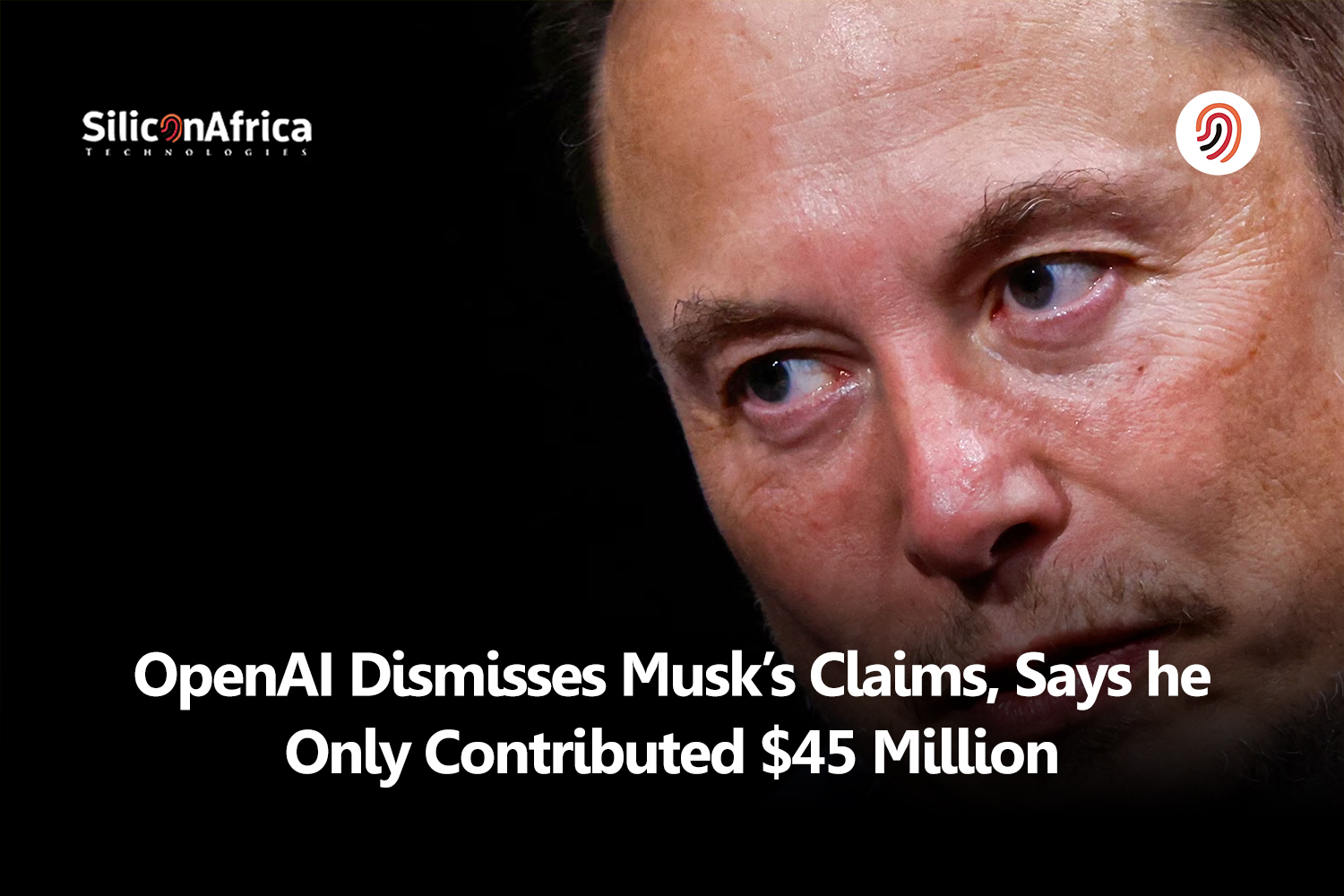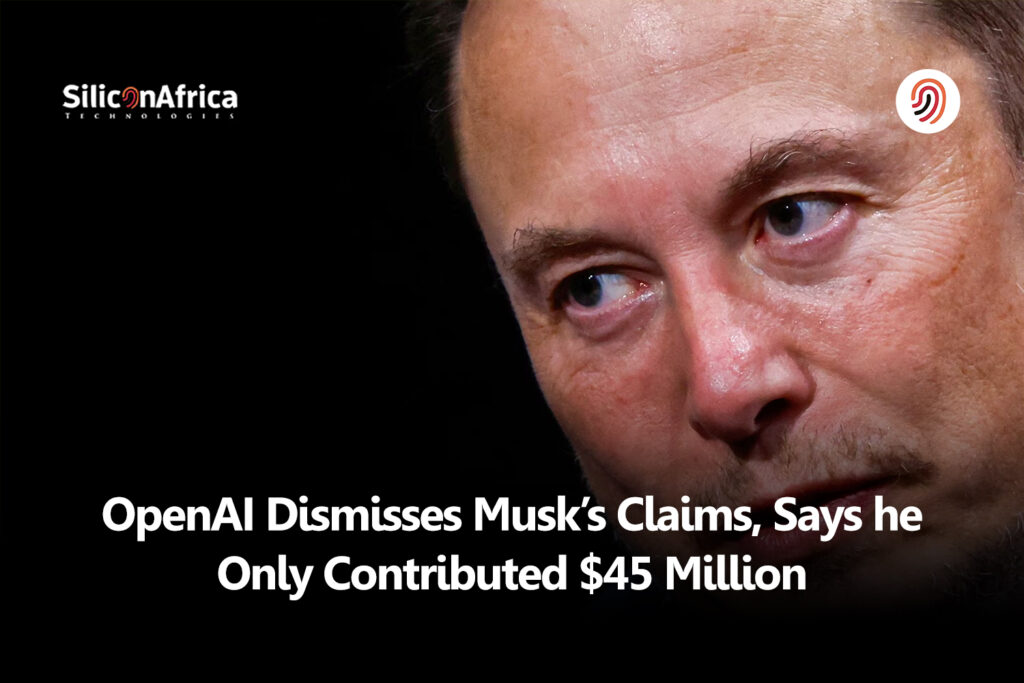Newsletter Subscribe
Enter your email address below and subscribe to our newsletter

One of the major AI startups, OpenAI, announced on Wednesday that it plans to reject every assertion made by Elon Musk in a recent lawsuit.

OpenAI further implied that Musk, a co-founder of the company, didn’t actually have that much of an impact on the growth and success of the business.
OpenAI declared that it would “move to dismiss” each and every one of Musk’s legal claims in response to this lawsuit. However, the AI startup also asserts that Musk had previously backed OpenAI’s intentions to turn into a for-profit business and that, prior to his departure in 2018, he had desired to assume total control of the organization.
According to OpenAI, Musk “withheld funding” in the midst of talks in 2017 and contributed less than $45 million in total to the company.
The company expressed its sadness that it has come to this with a person it has greatly admired: someone who encouraged them to aim higher, told them they would fail, founded a rival company, and then sued them when they saw real progress being made toward OpenAI’s mission without him.
Musk claimed in the lawsuit that although OpenAI’s founding agreement required the startup to make its technology “freely available” to the public, the company had overshifted its priorities to maximize profits for Microsoft.
The Microsoft-backed startup OpenAI, along with Greg Brockman, Ilya Sutskever, John Schulman, Sam Altman, and Wojciech Zaremba, wrote a blog post.
They disclosed that, despite Musk’s initial pledge to contribute up to $1 billion in funding, it has only raised less than $45 million from him since its founding in 2015. According to the startup, it also received more than $90 million from other donors to help fund its research.

The response from OpenAI comes after Musk sued Altman, Brockman, OpenAI, and other business affiliates last week, claiming that the company had broken its initial contract by prioritizing profits over the nonprofit’s original goal of creating AI that helps people. According to him, OpenAI was established as a counterbalance to Google.
“Billions of dollars a year, which was far more than any of us, especially Elon, thought we’d be able to raise as a non-profit, was something we all understood we were going to need to succeed at our mission,” the company stated.
According to OpenAI, in 2017, the group and Musk determined that a for-profit organization was the next logical step. However, Musk reportedly desired “majority equity, initial board control, and to be CEO.”
“He withheld funding in the middle of these discussions,” the business says. “Reid Hoffman filled the void by paying for operations and salaries.”
According to OpenAI, agreements could not be reached because it did not want any one person to have “absolute control.”
The company said Musk suggested in an email at the beginning of 2018 that OpenAI “attach to Tesla as its cash cow” and that there was no other way for the business to “reach sustainable Google-scale capital within a decade.”
He soon made the decision to leave OpenAI, claiming that there was no chance of success and that he intended to create a rival AGI (artificial general intelligence) system within Tesla, according to OpenAI. “He informed our team that he was okay with us figuring out how to raise billions of dollars on our own when he departed in late February 2018.”
Elon wrote us an email in December 2018 stating that “even raising several hundred million won’t be enough… This requires billions annually right away, or else forget it.”
Musk had claimed that OpenAI had abandoned its open-source principles. In response, the Microsoft-backed startup stated that Musk had been aware of and had consented to the organization’s eventual move away from total transparency as it advanced its AGI development.
Elon realized that open-sourcing AGI was not a requirement of the mission. “It will make sense to start being less open as we get closer to building AI,” Ilya said to Elon. Elon answered, “Yes,” to the statement that “The ‘Open’ in openAI means that everyone should benefit from AI’s fruits after they are built, but it’s totally OK to not share the science.”
There are those who argue that Musk’s lawsuit is without merit because it asserts that OpenAI violated a fictitious contract.
Musk is also working on xAI, his own AI startup that he founded last year. Grok, the company’s AI chatbot, looks to be a rival to OpenAI’s well-liked ChatGPT product.